Recent Articles
Popular Makes
Body Types
Car Leasing Tips
How to Avoid Getting Ripped Off

Unless you're already experienced and savvy at leasing cars, you need to read these car leasing tips if you want to avoid getting ripped off. Leasing a car is a lot more complicated than you might imagine. Especially, when car dealerships and dealers are telling you that it's easier and better to lease a new car than it is to buy and finance one. And, it's easy to want to believe them when you see how low the monthly payments are for leasing a car in comparison to financing one. These car leasing tips will help you save money and help you decide if leasing a car is the right option for you. The following car leasing tips are not listed in order of importance, they are only numbered for you to refer back and forth between them quicker, if you need to.
Car Leasing Tip #1: Understanding Car Leases
Very simply put, leasing a car is basically renting a car. However, when you lease a car, you are paying for the predetermined depreciation of the vehicle for the length of your lease (the lease period or lease term) and you are responsible for all maintenance. Your monthly car lease payments are determined by how much your car is estimated to depreciate over a determined period of time, plus interest, taxes, and fees per month (see Car Leasing Tip #5). For example, new cars depreciate in value between 50% to 60% in the first three years, which just so happens to be the length of most car leases- 36 months (car lease periods are presented in months). In fact, it is also the length of most car warranties- 3years/36,000 miles. And, guess what? Those 36,000 miles divided by 3 years averages to 12,000 miles each year, and equal to the mile restrictions for many car lease contracts. If you are offered a lease with a different lease term or less mileage restrictions (see Car Leasing Tip #6), than you may want to consider walking away from that lease. As you read the rest of the car leasing tips, you will understand why.
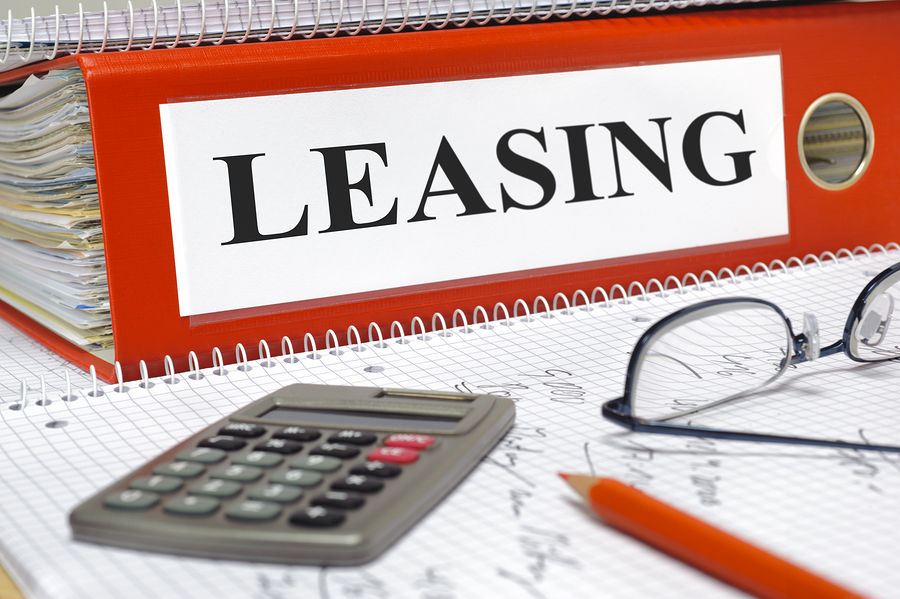
Car Leasing Tip #2: Leasing From the Car Dealership
A common misconception many people have is that when you go to a car dealership to lease a car, you are actually leasing from the car dealership. In actuality, however, it is extremely rare for a dealership to finance their own car leases. Car dealerships use a car leasing company to complete your car lease transaction. When you lease a car, you are leasing a car from a leasing company- an independent car leasing company, the car manufacturer’s finance company (like GMAC for Chevy), or a bank or credit union. Here's how it works. The dealership writes up the car lease agreement for their leasing company, charges you that “service” (possibly with extra hidden costs in the lease agreement), and then receive full payment in the amount of your negotiated price from the car leasing company.
The dealerships are essentially acting as the “middle-man” between you and the car leasing company, because they write up all the paperwork. When you lease a car from the dealership, it is always a win/win situation for the dealership. They get paid, in full, for the negotiated price of the car you lease, and they get paid extra for negotiating the deal. As such, car dealerships are very good at hiding fees (or outright “stealing” from you) by applying part, most, and sometimes all of your up-front/down payment towards costs within the leasing contract- and not towards the negotiated price.
Although it may sound like you should never lease directly from the dealership, you can actually get some amazing deals. Same as any other industry, the closer you get to buying from the source of the product, the better deal you will find. You should be able to distinguish between honest and dishonest dealerships if you continue reading through all of these car leasing tips.
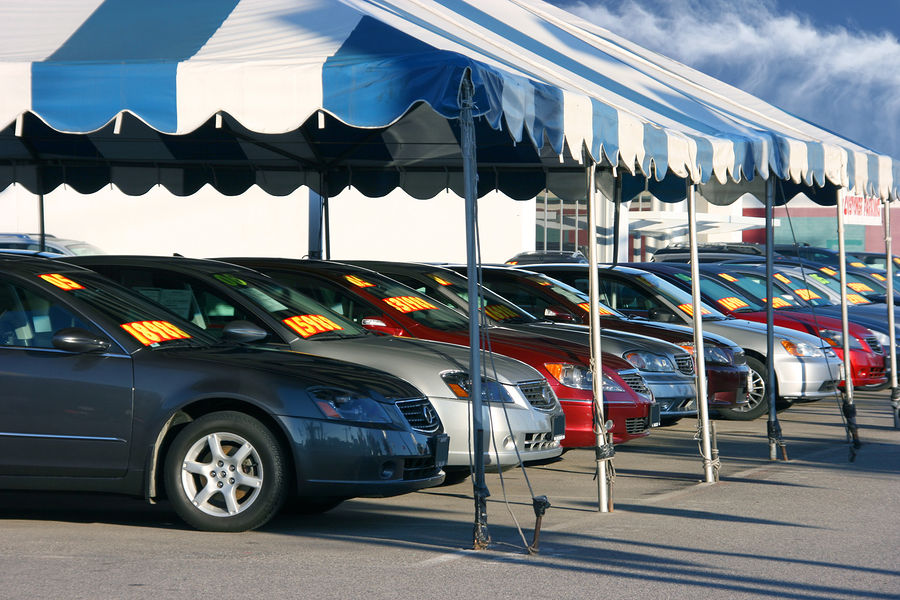
Car Leasing Tip #3: Leasing From an Independent Leasing Company, Bank, or Credit Union
Another option you may want to consider is leasing your car from an alternative leasing source-somewhere other than the dealership. The biggest benefit using an alternative leasing source is that there is no negotiating. Usually, alternative leasing sources have set leasing contracts in place based on vehicle makes and models. However, interest rates are likely to vary depending on the credit scores of those that apply. They will, in most cases, give you a competitive car lease offer for the car you want with no tricks and nothing to hide. Plus, when you use an alternative lease source, you can negotiate with the dealership as if you are paying cash get the best deal- thus lower monthly payments.
When you shop around, you will find a wide variety of lease offers. For example, you will find completely different monthly payments (see Car Leasing Tip #5), depreciation/residual values (see Car Leasing Tip #4), interest rates, mileage limitations, and the list goes on. If you are a member, credit unions offer some of the best rates and tend to have more forgiving mileage limitations, fees, and higher residual values. Remember, you can't be too diligent with your car lease search, because there is a lot of competition for your business.
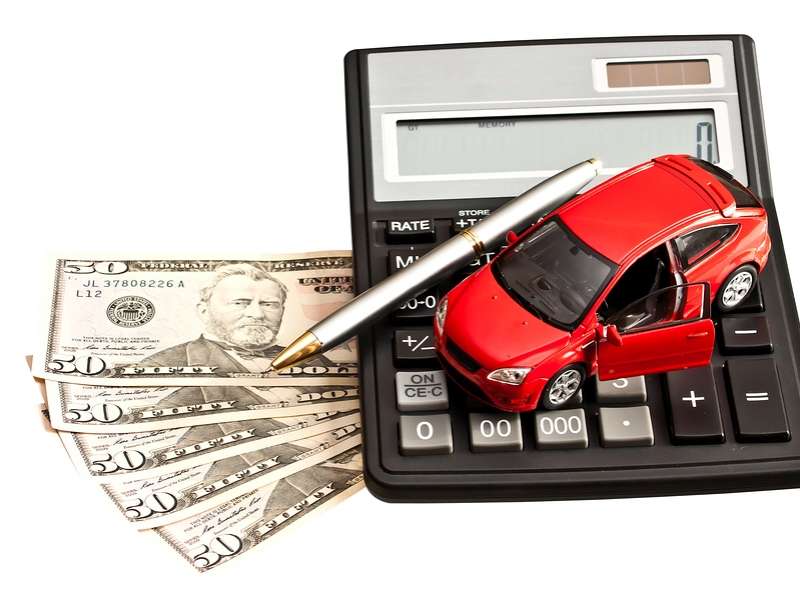
Car Leasing Tip #4: Depreciation Value and Residual Value
Knowing the difference between depreciation value and residual value is crucial if you are planning to lease a car. Depreciation value for cars is the decline in a vehicle's value over time. Most cars lose about 50-60% of their value in the first three years. So, at 50%, a car that had a manufacture's retail price (MSRP) of $24,000 three years ago would be worth around $12,000 today, thus its depreciation value is $12,000 after three years. And, at 60%, then that same $24,000 car would be worth around $9,600 today, with a depreciation value of $14,400.
The actual definition of residual value is the future value of a good or product in terms of percentage of depreciation of its initial value. In car terms, the residual value of a car is the amount the car is worth at the end of its useful life. You need to understand that a car's residual value is only a very well-educated estimation of what the car should be worth at a particular time in the future. For the next example, that same $24,000 car has a residual value of 60% (however unlikely). Thus, the car is actually worth $14,400. Notice that the depreciation value of a car states how much value is lost, while the residual value states how much value is left after a certain period of time.
Car leasing companies base their residual values on a percentage of the MSRP, and not based on the negotiated price. In other words, if you lease the previously mentioned car with the $24,000 MSRP/60% residual value car but negotiated the price down to $21,000, then you will have lower monthly payments (see Car Leasing Tip #5).
Car dealerships use the terms depreciation value and residual value often, and in ways meant to confuse you. Car dealers are really good at confusing unsuspecting customers with a lot of percentages and terms. Dealers have also been known to tell potential leasers that depreciation values and monthly payments are based on MSRP, in order to convince them to agree to lease a car at MSRP. Although it's not an outright lie, it is a half-truth with the intention of deception. The reason it's not a lie is because car leasing companies actually do base their depreciation value on MSRP, thus their residual value of a car as well. However, it's a half-truth because they do not mention that the residual value of the car you want to lease stays the same, regardless of the agreed purchase price. Remember, if you negotiate a purchase price less than MSRP, then your monthly payments will be less than if you agreed to a purchase price at MSRP. The price you pay for your car is called the capitalized cost, or cap cost for short.
Before you go to the dealership, make sure you really understand everything about depreciation value and residual value by reading both articles Autobytel.com's articles.
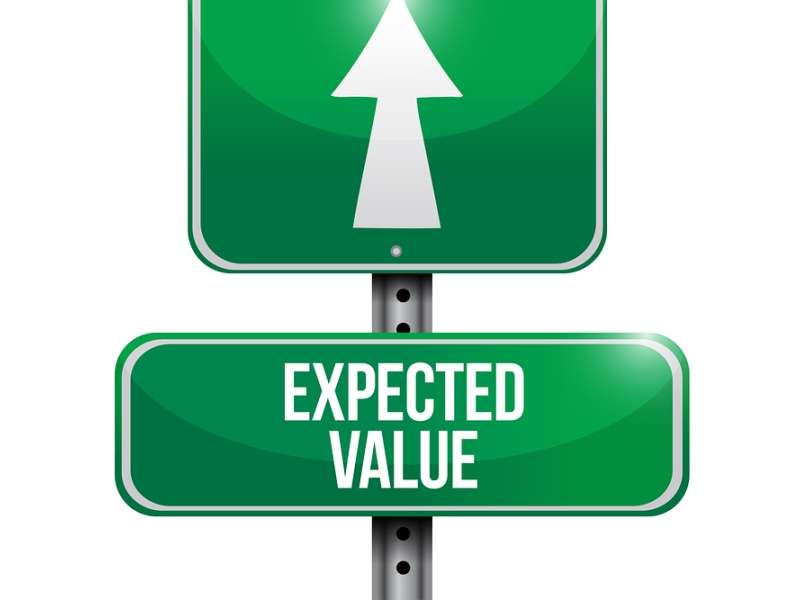
Car Leasing Tip #5: Monthly Payments
When it comes to car leases, your monthly payments are mostly based on the residual and depreciation values (see Car Leasing Tip #4). The formula for calculating your monthly car lease payment is the depreciation value of your car (your capitalized cost minus the car's residual value), plus interest, taxes, and fees divided by the number of months in your lease.
When you are quoted a monthly lease payment, you have to pay attention to all the factors in the formula, not just the depreciation and residual values. Make sure you understand your interest rate, taxes, and other possible fees (see Car Leasing Tip #6), because dealerships and car loan companies are not obligated to disclose any of these factors!
The length of you lease is also very critical. Remember, once you sign the car lease, you are locked-in and obligated to make every single payment. The typical, and most desirable, lease term (length of a lease) is 36 months (3 years), because the leased car is covered by the manufacturer’s warranty for the duration of the lease. When you are leasing a car, especially from a dealership, pay very close attention to your lease term. Be careful and aware of 39 month leases. Dealerships often advertise very enticing leases at very low monthly payments. There's always a catch, and sometimes it's a 39 month lease term. If you're not paying close attention you may actually think your signing a 36 month car lease, because you are so used to seeing 36 month car leases. Of course, you get lower monthly payments, but you are risking three months of driving your leased car with no warranty protecting it. Similarly, be careful of 4 and 5 year leases. Your monthly payments will be really low, but you have to purchase the extended warranty, if you want it covered during your leasing term. Is it really worth paying all that extra money just to give it back? Also, only agree to a 2 year lease if you think you're probably going to need a new car in two years- perhaps you're planning to have a baby or may have to relocate for work.

Car Leasing Tip #6: Interest Rate, Lease Fees, and Tax
Finding out how your monthly payments are put together is actually much more difficult than you might think. Unbelievably, car dealerships and leasing companies are not legally obligated to tell you how the monthly payments are calculated for the car you are interested in leasing. In fact, the only figure you will probably find on your leasing contract is your monthly payment! It's actually quite surprising, considering our current financial world of full disclosure. Since there is no obligated disclosure on how your monthly payments, you could very easily get ripped off. Dealerships can very easily hide costs, eliminate your negotiated cap cost, omit your trade-in value, and grossly inflate the interest rate (or simply just make an honest mistake)- if they want to deceive you.
Interest Rate/ Money Factor
If you do not ask the right questions, then you will never know if your monthly payments actually reflect all your negotiations and quotes. Save yourself a future headache/battle by asking what your interest rate is going to be first. If the salesperson mentions that they are not legally obligated to disclose that kind of information, then don't even bother responding- just turn, walk away, and don't look back. And, if you are persuaded enough to stay, you'll know to be extra cautious. Make sure you are disclosed everything. That way you can do some calculations to make sure you're not getting ripped off.
Car leases don't actually have interest rates, they have what is usually called a money factor. Don't let a salesperson tell you that the money factor is too confusing to explain. Get a quote anyway, because you can convert the money factor to an approximate interest rate by multiplying it by 2400. For example, a money factor of 0.0013 is an interest rate around 3.12%; a money factor of 0.0042 is around 10.08%. Sometimes dealerships will quote a money factor that looks like a low interest rate, like 2.75. Don't be fooled, 2.75 is still the money factor- just multiply it by 2.4 instead of 2400 to get your interest rate (6.6%). Be sure that you know your credit score before you shop for a car lease, that way you'll know if the interest rate offered is fair. If your credit score is in the 800's and you are offered a really high interest rate, then you'll know there's something wrong.
Leasing Fees
Also, make sure you know all the lease fees involved in your lease, and which are going to be applied to your monthly payment, your lease rate. The following are examples of the most common fees seen in car leases.
The acquisition fee is an administration fee charged by the leasing company. Since it's a fee charged by the leasing company it cannot be negotiated. However, some dealerships “pad” this fee, so if you feel this fee has been bumped up- go ahead and try to negotiate it down. The average range for this fee is between $500 to $1000, depending make and model of the car. Usually, the acquisition fee is part of your up-front fees due at lease signing.
Just like buying a car, you are still responsible for paying the registration and tag fees up-front at signing. These are required by your state and local governments and are obviously not negotiable, and amounts vary by make and model.
You may also be charged a documentation fee, which is similar to the administration fee, but it is charged by the dealership and amounts vary. Since it is charged by the dealership, it may be negotiable. However, some dealerships will not negotiate their documentation fee- without exception. It is not uncommon for this fee to be included in your monthly payment.
Another up-front fee you may expect from the leasing company is a security deposit, which is often the same amount as your monthly lease payments. In some cases, especially if you are a returning customer or have excellent credit, the security deposit can be waived. At the end of your lease period, your security deposit could be applied as your last monthly payment, to help cover any damages not considered normal wear and tear, or other fees, like driving over your mileage limitations.
Your leasing company will charge you a disposition fee at the termination of your lease. They charge you this fee as compensation for the expense of selling or disposing your car. If you plan to buy your car after your lease period, then you can probably negotiate with your leasing company to waive this fee.
Sales Tax
Unlike leasing an apartment, you do have to pay taxes on your leased car. In most states, you are only responsible for the sales tax on the depreciated value of the car during your lease period. And also in most cases, the sales tax is spread-out among your monthly payments. However, there are a few states that do require sales tax on the entire capitalized price to be paid up-front at lease signing. Check your state's car lease tax laws before you lease a car- it doesn't make sense to pay all the sales tax on a vehicle you are returning. You should also know that if you lease a car in one state and have to move to another state, you will still be responsible for all the applicable car lease laws for the state you are moving to- talk to your leasing company before you lease, if you think that moving to another state is a possibility.
Car Insurance
Don't forget about car insurance. Your leasing company will require you to purchase a minimum amount of car insurance, just like a bank would if you were financing a car. Another type of car insurance to consider adding to your policy is gap insurance. If your leased car is stolen or totaled, gap insurance will cover the difference in amount your car is worth and the amount you still owe on your lease.
Mileage Restriction Fees
Another fee will be any miles driven over your mileage limit. You can expect to pay around 20 cents per mile you drive over your mileage limit, which you will have to pay when your lease period is over. If you negotiate for a higher mileage restriction, your monthly car lease payment will be a little higher but you will probably end up saving money by not paying that mileage restriction fee.
Know what your mileage limitations are before you even consider looking at a lease. When looking for a car lease make sure it has an average of at least 12,000 miles per year, because most drivers average around 12,000 miles per year, according to industry standards. In other words, a 36 month car lease should have a mileage limit no less than 36,000 miles. If you are looking at a 36 month car lease with a 30,000 mile restriction, then be cautious because the lease is only offering an average of 10,000 miles per year. So, unless you know for sure that you can keep the mileage under 30,000 miles, do not consider the lease. Also, consider the alternative. Some car leases offer a 15,000 mile per year restriction, which gives you a lot more leeway (and many people agree is closer to their actual yearly mileage average). Since more miles on a car translate to a higher depreciation value, your monthly will be higher. However, you will probably save money by not paying any mileage overage fees. Before leasing a car, make sure you have a good idea of the average miles you drive per year, and find out what your mileage options are before you decide to sign a lease.
Miscellaneous Fees
Ideally, you really shouldn't have any miscellaneous fees. If you have been disclosed everything, then you shouldn't see any fees or taxes that don't look familiar. If there are any, ask the dealer to explain them. Since these fees are added by the dealership, you can negotiate to get them waived or reduced. However, only negotiate those fees if you believe they are legitimate, otherwise just walk away from the deal. Most likely they are just random official-sounding fees, that the dealership just tacked on to try and off-set any losses from your negotiations. There are plenty of other dealerships that will give you a good, honest deal. Also, remember to ask which fees are included in your monthly lease payment and which fees are due at the beginning or end of your lease period.

Car Leasing Tip #7: Down Payments & Money Due Up-Front
It's easy to get mislead by all the car lease ads promising low monthly payments and no down payment. In fact, ads that promise zero down and zero due at lease signing, although not common, are also misleading. Or, you may even see a lease offer that has extremely low monthly lease payments for a specific down payment. It doesn't matter what the deal is offering, there is going to be a catch somewhere else in the lease.
First of all, you should know the difference between a down payment and money due up-front. If you are putting down a true down payment towards the lease of your car, it means that every cent of it is applied to reducing the capitalized cost of the vehicle. On the other hand, any money due up-front, sometimes phrased due at lease inception, is due when you sign the car lease and is only applied toward lease fees and taxes- and IS NOT applied toward your cap cost.
So, when you see car lease ads that offer low monthly payments and nothing down, it doesn't mean that you don't have pay anything when you sign your lease. You are still responsible for any up-front fees that the dealership and car lease company are charging you, and all applicable taxes. If you look closely at the fine print, you may find up-front fees that will cost you thousands of dollars.
Now, consider the car lease ad offering zero down and zero due at lease signing. It is extremely rare to find a car lease of this type. The reason is because there are fees and taxes that need to be paid up-front and they cannot be waived. Basically, these fees and taxes get added to your cap cost and they get spread out into your monthly lease payments. Thus, they become part of your monthly lease payment and you'll have to pay interest on them. So, you end up paying a lot more than if you paid the fees and taxes up front.
Then, there is the ad that promises a really low monthly lease payment and a specific amount down. These car lease deals are a bit misleading because it makes you think that the cash you are putting down is for the down payment, thus lowering your cap cost. However, the amount quoted in the ad is probably going to be applied toward both a down payment against your cap cost and any up-front fees and taxes. Know exactly where your money is going before you agree to a lease like this.
Regardless of the lease you are considering is advertised or not, make sure that you know exactly where all your up-front cash is being applied. If you are putting cash down for a down payment to reduce your cap cost, make sure that every penny is applied to your cap cost and not applied to any up-front fees or taxes. Always make sure that your down payment and/or up-front money are applied to where the dealer says they are going to be applied.
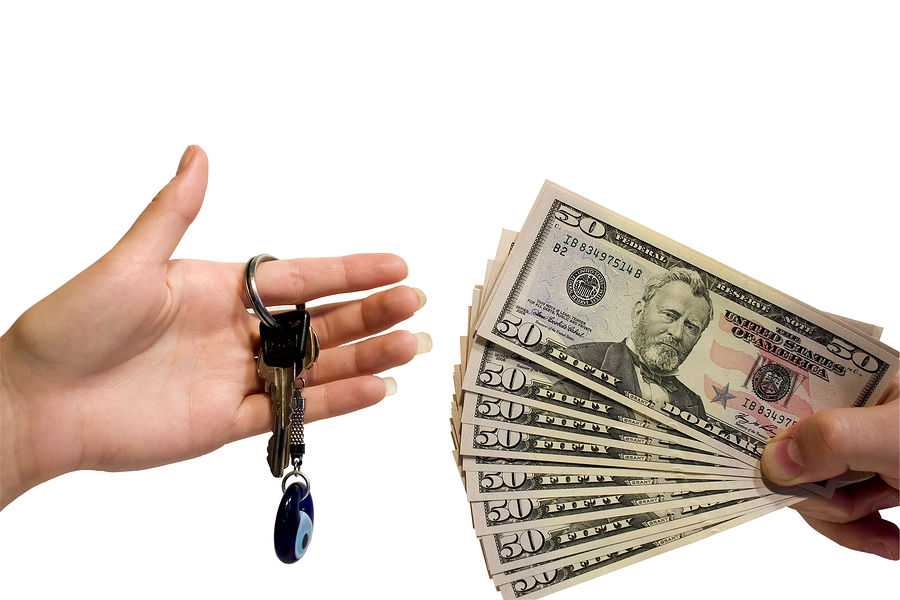
Car Leasing Tip #8: Use a Car Lease Calculator and Software
If you do your own income taxes, you probably use tax software, like Turbo Tax, to make sure your income tax returns are accurate. Car lease calculators and software essentially do the same thing. Pretty much all you do is input your data and the car lease calculator/software will tell you what your lease payments will be each month (Car Lease Tip #5). If you enter all the information disclosed by the dealership (Car Lease Tip #6) then the car lease calculator/software should calculate the exact same monthly payment as the dealership's monthly payment. Car lease calculators and software can be found easily online, but make sure you trust the source, especially if it's free.
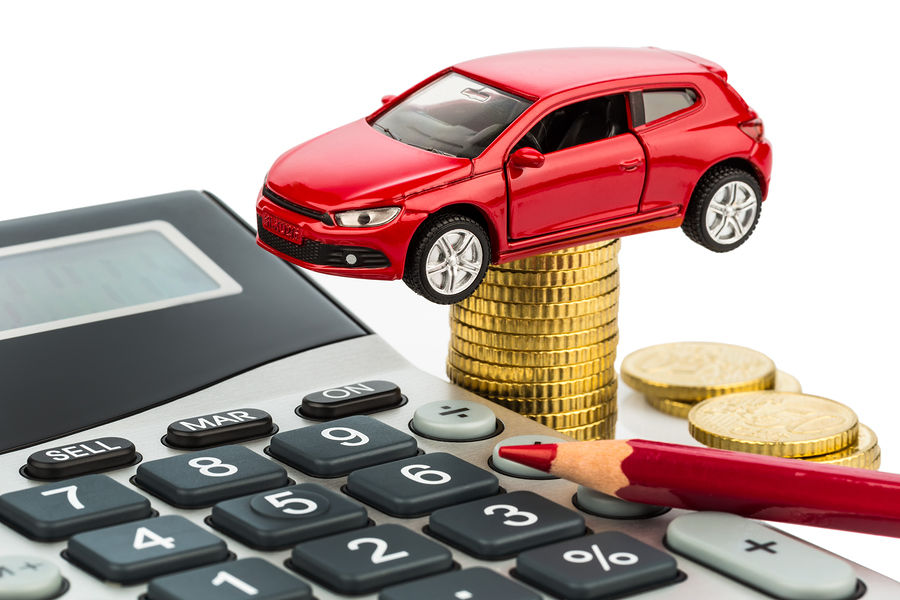
Car Leasing Tips #9: Study Your Contract / Shop Around
Obviously, you need to study your car lease contract very carefully before you sign it. But, you should also do everything you can to look for a better deal. Ask if you can take the car lease contract home to study. Be wary if a dealership says no, should never be pressured to make a decision on the spot. Honest dealerships will accommodate you. As you shop around, get as many car lease offers to take home as you can. That way you will have a better idea of which offer is best for you, especially, if you use your car lease calculator/ software (Car Lease Tips #8) to check for accuracy and to compare quotes.
